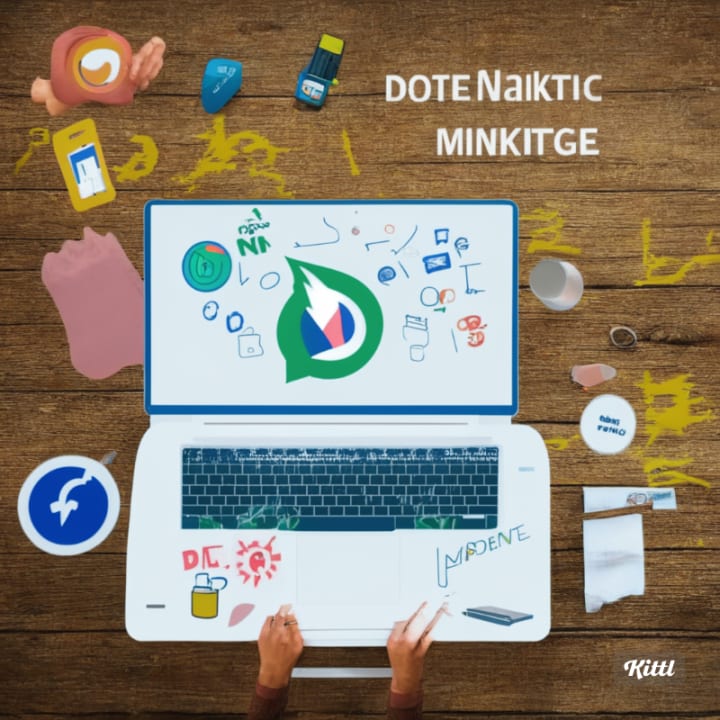E-commerce vs digital marketing
Why Ecommerce is Poised to Dominate Retail: The Advantages of Convenience, Reach, Cost-Effectiveness, Personalization, Mobile Optimization, and Social Media

Ecommerce and digital marketing are two sides of the same coin, both playing crucial roles in the online marketplace. However, as the world continues to shift towards a more digital future, it's becoming increasingly clear that ecommerce is the future of retail.
Ecommerce is the buying and selling of goods and services over the internet, while digital marketing is the practice of promoting products or services through various digital channels. While digital marketing is an essential component of any ecommerce strategy, ecommerce offers many advantages over traditional brick-and-mortar retail, which is why it's poised to dominate the retail landscape in the coming years.
Easily manage your email campaigns and workflows with our user-friendly software here

Convenience
One of the most significant advantages of ecommerce over traditional retail is convenience. Online shopping allows consumers to shop from the comfort of their own homes, at any time of the day or night. This convenience is especially important for busy consumers who don't have time to visit physical stores during normal business hours. Ecommerce also eliminates the need to travel to a physical store, saving time and reducing the environmental impact of transportation.
Wider Reach
Ecommerce also offers a wider reach than traditional retail. With an online store, businesses can reach customers all over the world, breaking down the barriers of geographic location. This opens up new markets and revenue streams that would be impossible to tap into with a physical store.
Easily manage your email campaigns and workflows with our user-friendly software here

Lower Costs
Ecommerce can also be much more cost-effective than traditional retail. Online stores don't require the same overhead costs as physical stores, such as rent, utilities, and staff. This means that businesses can offer lower prices to customers while still maintaining healthy profit margins.
Personalization
Ecommerce also allows for a greater level of personalization than traditional retail. By analyzing customer data, businesses can tailor their marketing messages and product recommendations to individual customers. This creates a more personalized and engaging shopping experience, which can lead to increased customer loyalty and repeat business.
Mobile Optimization
Mobile optimization is becoming increasingly important in ecommerce, as more and more consumers shop on their mobile devices. Ecommerce platforms are designed to be mobile-friendly, making it easy for customers to shop on the go. This is especially important for businesses targeting younger consumers, who are more likely to shop on their mobile devices.
Social Media
Social media is also playing an increasingly important role in ecommerce. With billions of users worldwide, social media platforms offer a vast audience for businesses to promote their products and services. Social media also allows for targeted advertising, so businesses can reach the right customers with the right message at the right time.
Digital Marketing
While ecommerce offers many advantages over traditional retail, digital marketing is still a crucial component of any ecommerce strategy. Digital marketing encompasses a wide range of tactics, including search engine optimization (SEO), pay-per-click (PPC) advertising, email marketing, social media marketing, and content marketing.
SEO is the practice of optimizing a website to rank higher in search engine results pages (SERPs). This can lead to increased visibility and traffic to a website, which can ultimately lead to increased sales.
PPC advertising involves placing ads on search engines and other websites, paying a fee each time someone clicks on the ad. This can be an effective way to drive targeted traffic to a website, especially when combined with SEO.
Email marketing involves sending promotional emails to subscribers, promoting products or services and building customer loyalty.
Social media marketing involves promoting products or services on social media platforms, building customer engagement and loyalty.
Content marketing involves creating and sharing valuable content, such as blog posts, videos, and social media posts, to attract and retain a clearly defined audience.
Easily manage your email campaigns and workflows with our user-friendly software here

Conclusion
In conclusion, while digital marketing is an essential component of any ecommerce strategy, ecommerce offers many advantages over traditional retail. Ecommerce is more convenient, has a wider reach, is more cost-effective, allows for greater personalization, is mobile-optimized, and can leverage the power of social media. As the world continues to shift towards a more digital future, it's becoming increasingly clear that ecommerce is the future of retail.





Comments
There are no comments for this story
Be the first to respond and start the conversation.